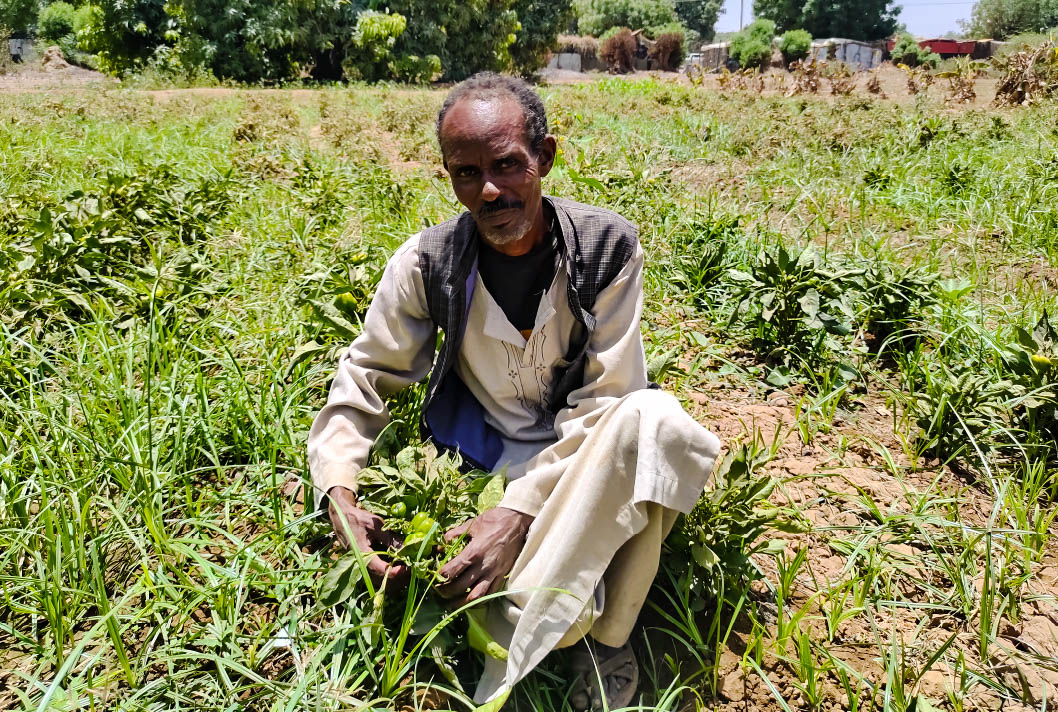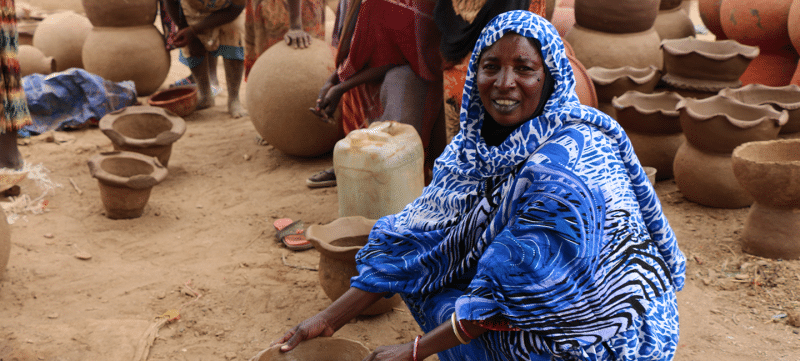Enduring poverty, widespread malnutrition, and recurrent epidemic outbreaks are Kassala state’s key struggles in Eastern Sudan. Yet, amidst these challenges, its access to fertile land and water resources presents an opportunity for crops like potatoes and sweet potatoes to become a source of food and income for farmers and their families.
.
In addition, Kassala faces the impacts posed by climate change, such as recurring droughts that threaten agricultural productivity. By combining local knowledge with innovative techniques and best practices, Practical Action and the International Potato Centre support farmers in unlocking potential and turning it into increased productivity and profitability. This initiative is possible thanks to USAID support and follows the success of a pilot in Blue Nile.
Project overview
Title: Sustainable Agrifood Systems Approach for Sudan (SASAS)
Dates: Dec 2023 – Sept 2024
Location: Kassala state, Sudan
Our role: Building the capacity of small farmers in agriculture techniques to increase their production and establishing locally-led solutions to support a thriving market.
Participants: ~11,000 small farmers in Kassala state, including internally displaced people (IDP), host communities, pastoralists and agro-pastoralists
Project budget: 520,573 USD
Aim: Farming that works
Lead donor: The project is a cooperation with the International Potato Center and funded by USAID
“We had previous experience in growing potatoes, and we had high production, but we faced issues with storage and marketing. The SASAS project was built around the obstacles we had, preparing the infrastructure by providing cold storage, solving the marketing issue by aggregation centres, and linking us with the company.”
Jalaldeen Babiker, member of the Alekhia Farmers’ Group
Context
As the third-largest country in Africa, Sudan contains 10% of the world’s available arable land, a variety of rich soil types, and a tropical climate suitable for year-round agriculture.
Despite this potential, food security continues to worsen rapidly, with an estimated 9.6 million people at high levels of acute food insecurity and malnutrition in Spring 2022. Feeding Sudan’s growing population nutritiously and sustainably will require substantial improvements and innovations to the country’s food system. The main challenge is the need to produce more nutritious food with the same or fewer resources in the context of erratic climates and climate change.
The conflict in Sudan has multiplied the challenges by drastically increasing the numbers of internally displaced People (IDP) in Kassala, joining its large, displaced population, both internally and from Eritrea and Ethiopia, as a result of a long history of ethnic conflict. There’s enormous pressure on an already fragile system to secure enough nutritious food and offer opportunities to rebuild their lives.
Kassala’s economy relies heavily on agriculture and livestock, with the cultivated land representing only a fraction of the state’s arable terrain. This land is predominantly dedicated to cash crops like sesame, wheat, beans, and cotton, alongside citrus fruits, renowned in the region. Halfa, El Gash, Seteet, and Kahoat areas concentrate on these activities.
High-yielding and nutritious potatoes and sweet potatoes can be part of the solution to food and income security. Unlike other major staple crops, both mature quickly in 3-4 months, delivering income for farmers in the context of rising local and regional demand. Despite the favourable agricultural potentiality and characteristics, the yield of sweet potato and potato crops is poor compared to the global average.
Our approach
Drawing on our expertise in regenerative agriculture and Integrated Water Resources Management (IWRM), along with community-led approaches, we will work with smallholder farmers to achieve sustainable and climate-resilient livelihoods.
To address climate impacts alongside food needs in this region, we’ll demonstrate how good agricultural practices can establish sustainable and climate-resilient livelihoods, achieve a security situation, increase small-scale producers’ income, and improve poor households’ nutrition and dietary practices. To do this, we will:
- Regenerative agriculture: We’ll procure seed and build the capacities of farmers to produce organics fertilisers from local markets.
- Sustainable farming practices: We’ll identify and promote best production practices by establishing or supporting farmer field schools, home gardens and nurseries. To reduce post-harvest losses, we’ll support the establishment of aggregation points, drying facilities and storage infrastructure.
- Water management: Using water-saving technologies, we’ll ensure the crops can reach good yields.
- Market access and income creation: By working with farmers’ groups, community-based organisations and associations will be supported in adding value to the crops and building their business and marketing skills, whichbusiness and marketing skills that will allow them to link to the markets.
Our goals
Our goal is to uplift livelihoods and ensure food security by fortifying resilience within potato and sweet potato farming, enhancing their productivity and profitability for inclusive and sustainable farming.
By the end of the project:
- Farmers will be able to access new technologies and advisory services to increase the availability of seed of potato and sweet potato
- Knowledge and skills on improved production and postharvest practices will be shared through farmers groups and by establishing Smallholder Vegetable Growers Groups
- Farmers will be able to access the markets fostering aggregation
- Nutrition awareness will be improved ensuring families can add these crops to their diets
-
Aims
The Sustainable Agrifood Systems Approach for Sudan project seeks to improve the livelihoods of more than 11,000 farmers and enhance food security by promoting potato and sweet potato cultivation. By increasing the production and access to quality-assured seed varieties, adopting productivity-enhancing technologies, and building market systems, the project aims to empower farmers and enable them to generate better incomes.
By October 2024, we will:
- Establish eight farmer’s field schools and demonstration activities
- Train communities on business development & marketing skills using the Participatory Market System Development (PSMD)
- Train seed producers on multiplication of sweet potato vines, potato stem cutting, and improving production techniques for other vegetables
- Establish or rehabilitate 4 dehydration centres
- Production of 20 silage cutting machines
Sustainable Development Goals
This project contributes to the 17 SDGs’ progress.
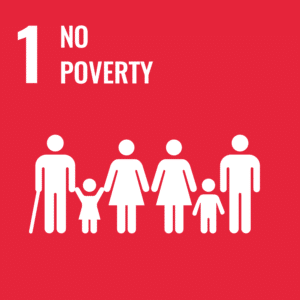
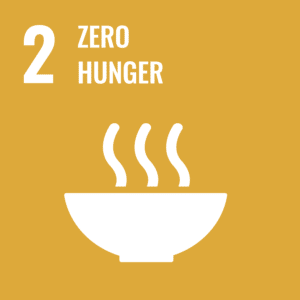
Through this project, we support household resilience in food and nutrition security.
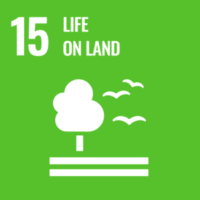
This project promotes sustainable land management by promoting agricultural practices.
Work like this depends on your support
Help us work with communities to tackle some of the world’s toughest problems
Project funded by:


